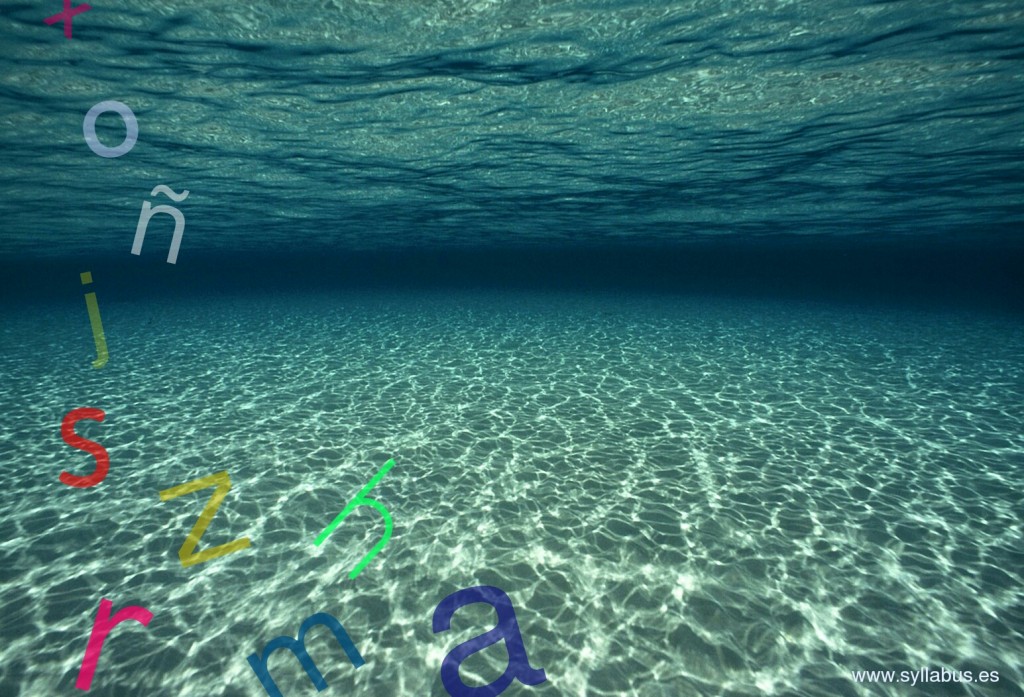Article in Spanish/ English.
Las aficiones que aparecen en nuestra vida cuando menos lo esperamos tienen un extra de emoción. Si además suceden en el ámbito del aprendizaje de una segunda lengua, el desafío y la recompensa por lo aprendido se dispara.
Un término que ha llegado para quedarse. La «inmersión lingüística» se ha convertido en pocos años en vocablo de moda. Google me dice que existen 445.000 entradas para un concepto que cada vez se lee y se oye más y no sólo entre profesionales y aprendices de idiomas. Es normal, se entiende a la primera que consiste en empaparse de la cultura y lengua meta deseadas para extraer el máximo conocimiento de ambas y alcanzar así el bilingüismo.
El motivo de estas líneas es animar, a primerizos sobre todo y a los que se lo piensan demasiado, a descubrir la realidad del lenguaje en su estado puro, por ello, si el primer artículo abordaba el salto al destino lingüístico desde «casa» o cómo podíamos preparar el terreno antes de «zambullirnos en el mar de las expresiones de los países de ultramar», esta segunda parte pone su foco en nuestras expectativas, sueños y cosas que nos gusta hacer antes de venir a España a tiro hecho.
Estas tres sugerencias harán que tu escapada española comience mucho antes de subirte al avión:
1. Ahora que sabes a donde quieres ir y dónde vas a estudiar, no está de más que conozcas el lugar de antemano. Nunca ha sido tan fácil como ahora: mapas, distancias, calles, tiendas, plazas, museos, parques, centros comerciales, sitios con WIFI, bancos, transportes… tener localizados los lugares clave te ahorrará el síndrome del trotamundos despistado que pregunta a los locales sin parar con un mapa arrugado en la mano. Te conviene tener controladas tus opciones de ocio para economizar tiempo antes de la «zambullida».
2. Las aficiones de las que hablábamos en el primer artículo las vamos a buscar. Céntrate en algo que te encante y domínalo también «en español». Un apasionado del arte moderno cuando viaja sabe donde están los museos, al igual que el buen gourmet no puede regresar a su país sin degustar la cada vez más influyente cocina española. Parece algo obvio explorar nuestros gustos fuera de nuestras fronteras, pero se puede ir más allá, si lo tuyo es el arte y visitas el museo Guggenheim en Bilbao (nuestra excursión preferida), ¿cuánto podrías contar en español sobre lo que has visto? ¿hasta dónde te sumerges desde el punto de vista léxico y semántico? Piénsalo.
3. Cuando cursé mi Beca Erasmus en Manchester, Inglaterra, recuerdo como un amigo se inventó nada más llegar un estilo de vida que apenas conocía: el kárate. De las sesiones en el gimnasio pasó a tener su «peña karateca» excursiones y eventos incluidos. He sabido que a día de hoy, muchos años después, ha llegado a convertirse en algo así como un «maestro» de las artes marciales. No puedo pensar en aquel chaval sin acordarme de Forrest Gump. Quiero decir con esto que un programa de inmersión puede ser doblemente enriquecedor. Una oportunidad más allá de las reglas gramaticales te puede sorprender…viajas a España para afinar tu segunda lengua y de vuelta a casa traes una guitarra flamenca al hombro. Y todo porque en algún momento te enganchaste al virtuosismo de Paco de Lucía.
Las aficiones que aparecen en nuestra vida cuando menos lo esperamos tienen un extra de emoción. Si además suceden en el ámbito del aprendizaje de una segunda lengua, el desafío y la recompensa por lo aprendido se dispara. A parte de la experiencia, ¿Crees que merece la pena todo ese input lingüístico nuevo?
No quiero terminar de escribir sin agradecer a los chicos de Linguistadores el haber compartido en su blog la primera entrega que un servidor redactó hace 8 meses.
Y si te apetece leer algo más sobre este tema, échale un ojo a este otro artículo:
Que pases un buen día.
A quick look at language immersion. Part 2.
«The excitement of taking up new hobbies when we least expect ourselves to do so has an extra touch of emotion. When it happens during the learning context of a second language, the challenge and reward for what we’ve learned shoots up.»
An expression that has come to stay. «Linguistic immersion» has become within a few years a trendy term. Google tells me that there are 445.000 entries for a concept that seems to be more and more read and heard and not only among professionals and language learners. It’s normal, it’s understandable that it is about getting soaked with the desired culture and target language to obtain the maximum knowledge from both to master bilingualism.
The purpose of these lines is to encourage the ones who think about it too much and especially first-time learners to discover language reality in its purest state, for this reason, If the first article moved toward the linguistic destination from «home» or how we could pave the way before «Before diving into the idiomatic sea of distant countries», this second part focuses on our expectations, dreams and things we like doing before coming to Spain directly.
These three suggestions will make your Spanish getaway starts much before you board your flight.
1. Now that you know where you want to go and study, it might be of interest that you gain prior knowledge of the place you are going to. It’s never been as easy as now: maps, distances, streets, shops, squares, museums, public parks, shopping centres, indoor WIFI places, banks, transports… to know where the key places are, will save yourself from the absent-minded globetrotter syndrome characterised by asking the locals nonstop with a crumpled map in your hand. It is convenient to have your leisure options under control to save time before you «dive in».
2. We will look for the hobbies we talked about in the first article. Focus on something that you love and master it «in Spanish» as well. A modern art freak, when he travels, knows where the museums are, just like a good gourmet can’t go back into his country without tasting the increasingly influential Spanish cuisine. It looks obvious to explore our tastes outside our borders, but we can go further, if you are into art and visit the Museum Guggenheim in Bilbao (our favourite excursion), how much would you be able to tell in Spanish about what you’ve seen? How deep will you dive from the lexical and semantic point of view? Think about it.
3. I remember when I went on an Erasmus program in Manchester, England, how a friend soon after his arrival, invented for himself a style of life that he hardly knew: karate. From the gym sessions he joined a «karate group» that included excursions and events. I was told nowadays, many years later, that he has become some kind of martial arts «maestro». When I remember that young lad I cannot help thinking about Forrest Gump. In other words, an immersion programme can have two-fold positive effect. An opportunity beyond grammatical rules can surprise you… you travel to Spain to fine-tune your second language and on your way home you bring a Spanish guitar on your shoulder. All because at some point you got hooked to Paco de Lucía’s virtuosity.
The excitement of taking up new hobbies when we least expect ourselves to do so has an extra touch of emotion. When it happens during the learning context of a second language, the challenge and reward for what we’ve learned shoots up. Apart from the experience, do you think it is worth all that new linguistic input?
I don’t want to stop writing without thanking the guys from Linguistadores to have shared in their blog the first issue I wrote 8 months ago.
If you feel like reading a bit more on this topic, see this article:
Have a great day.



